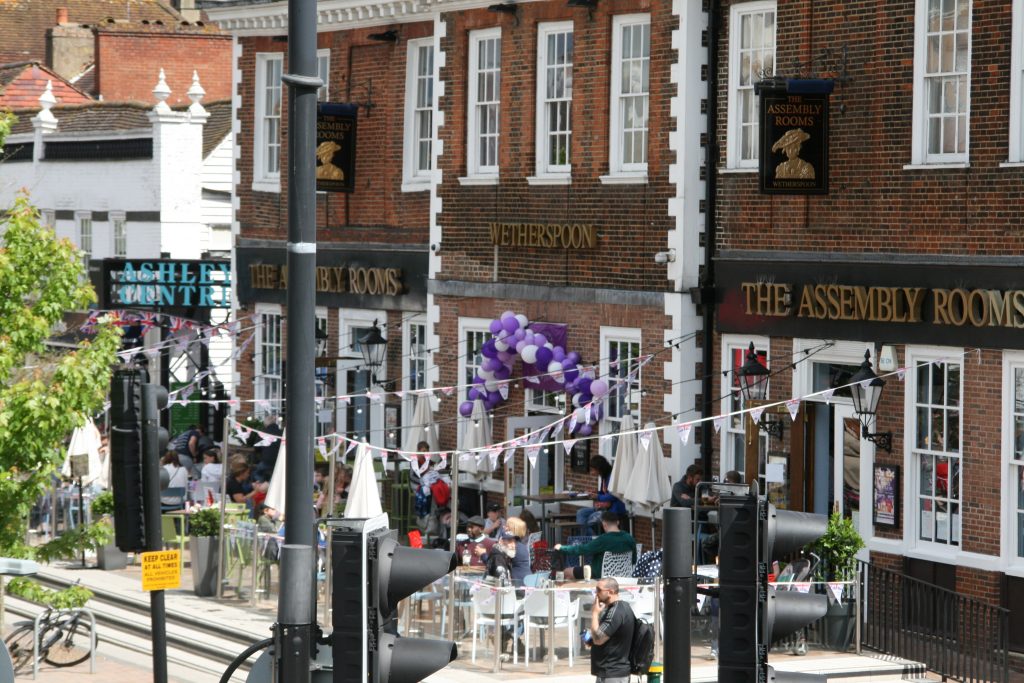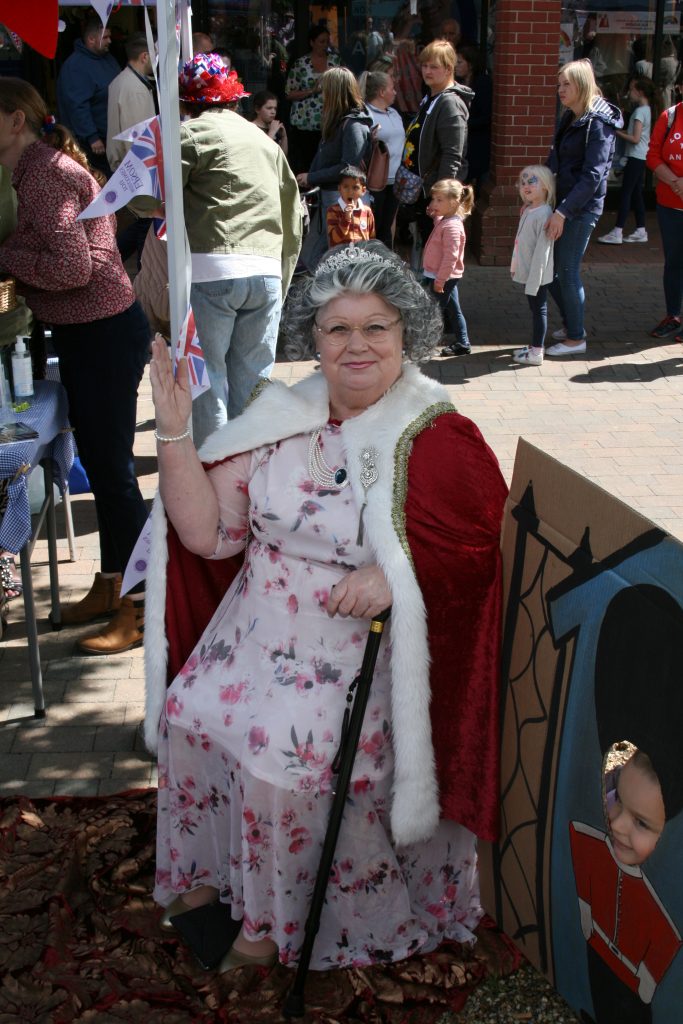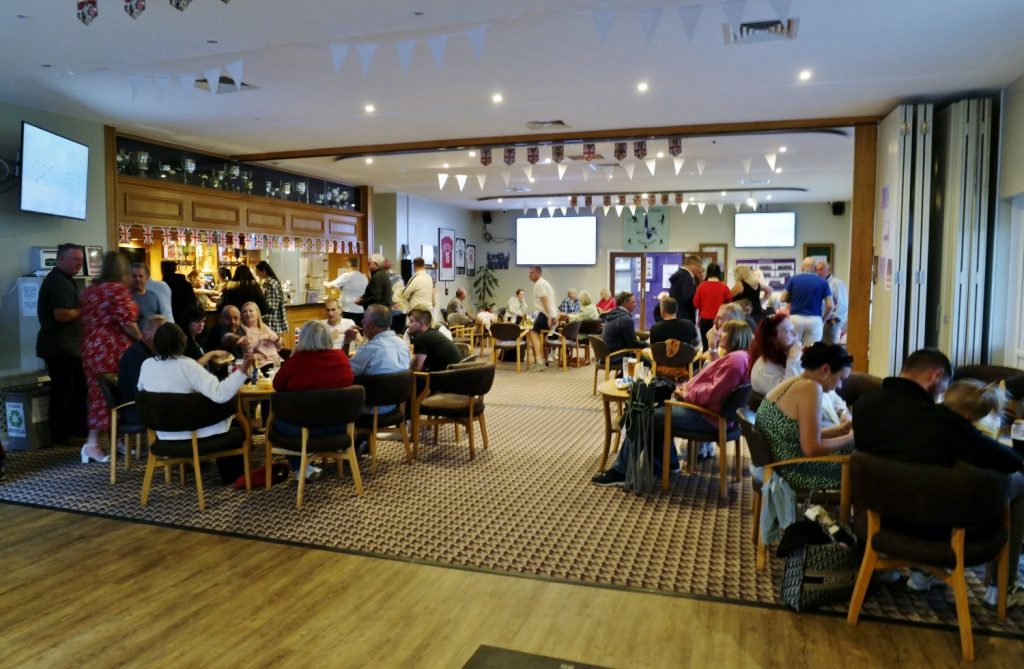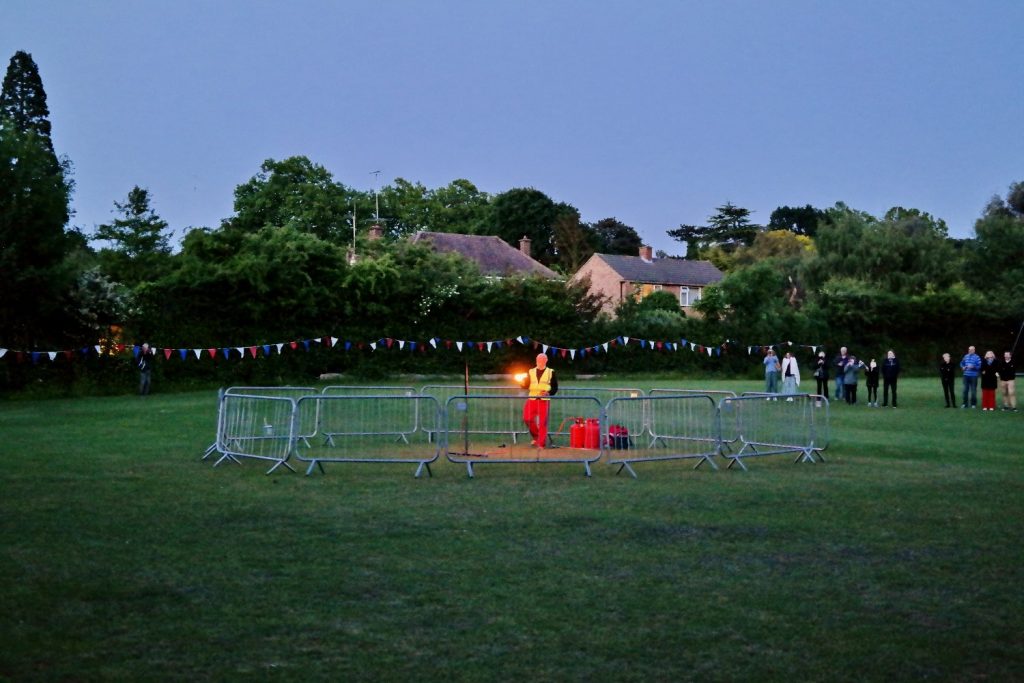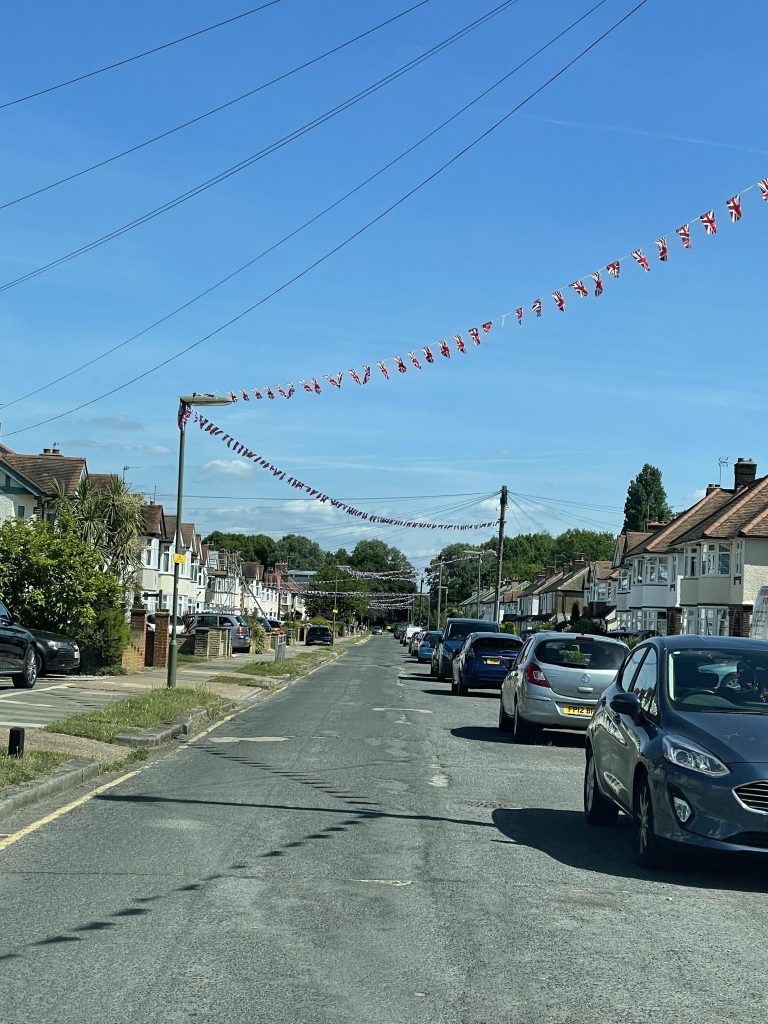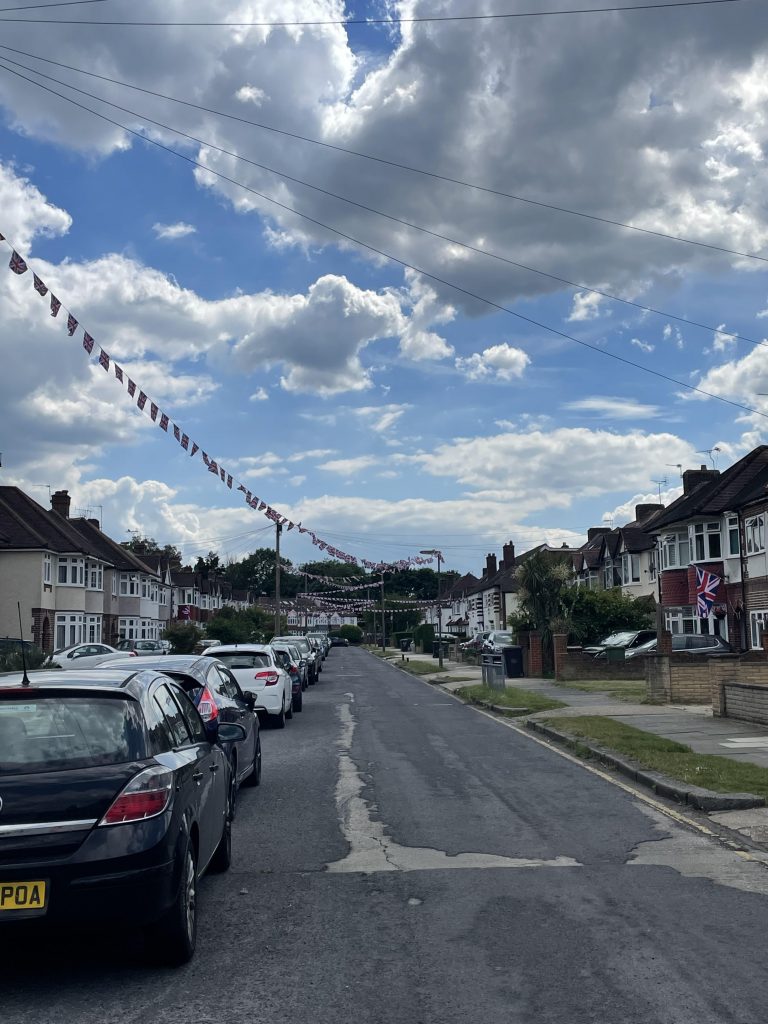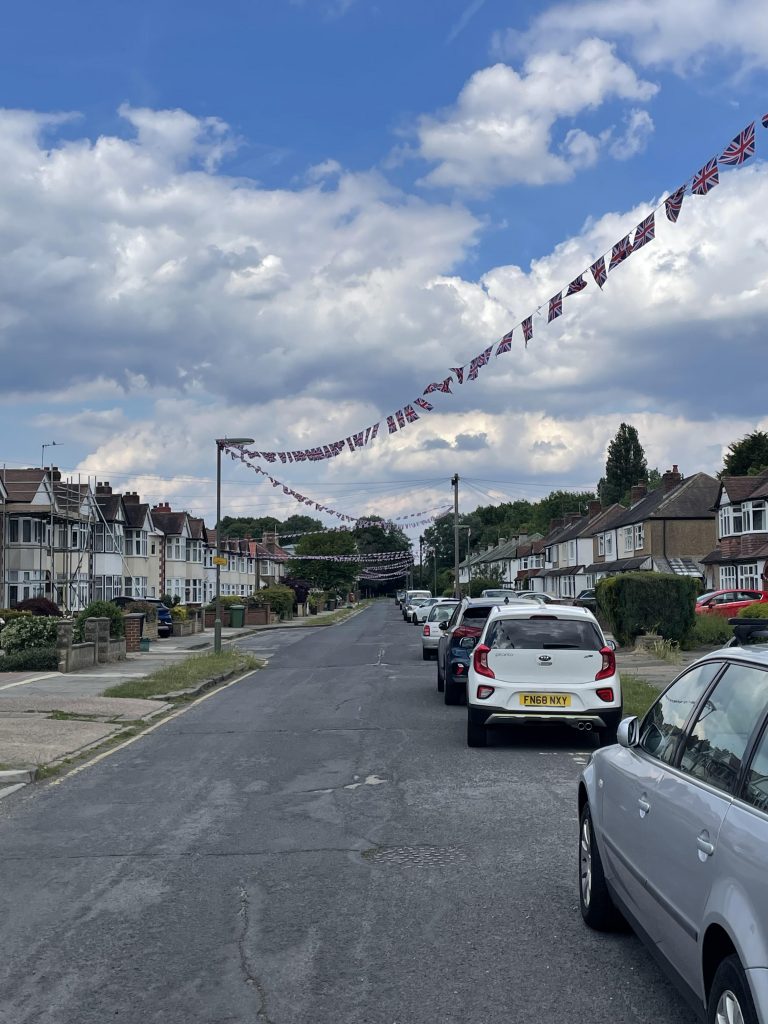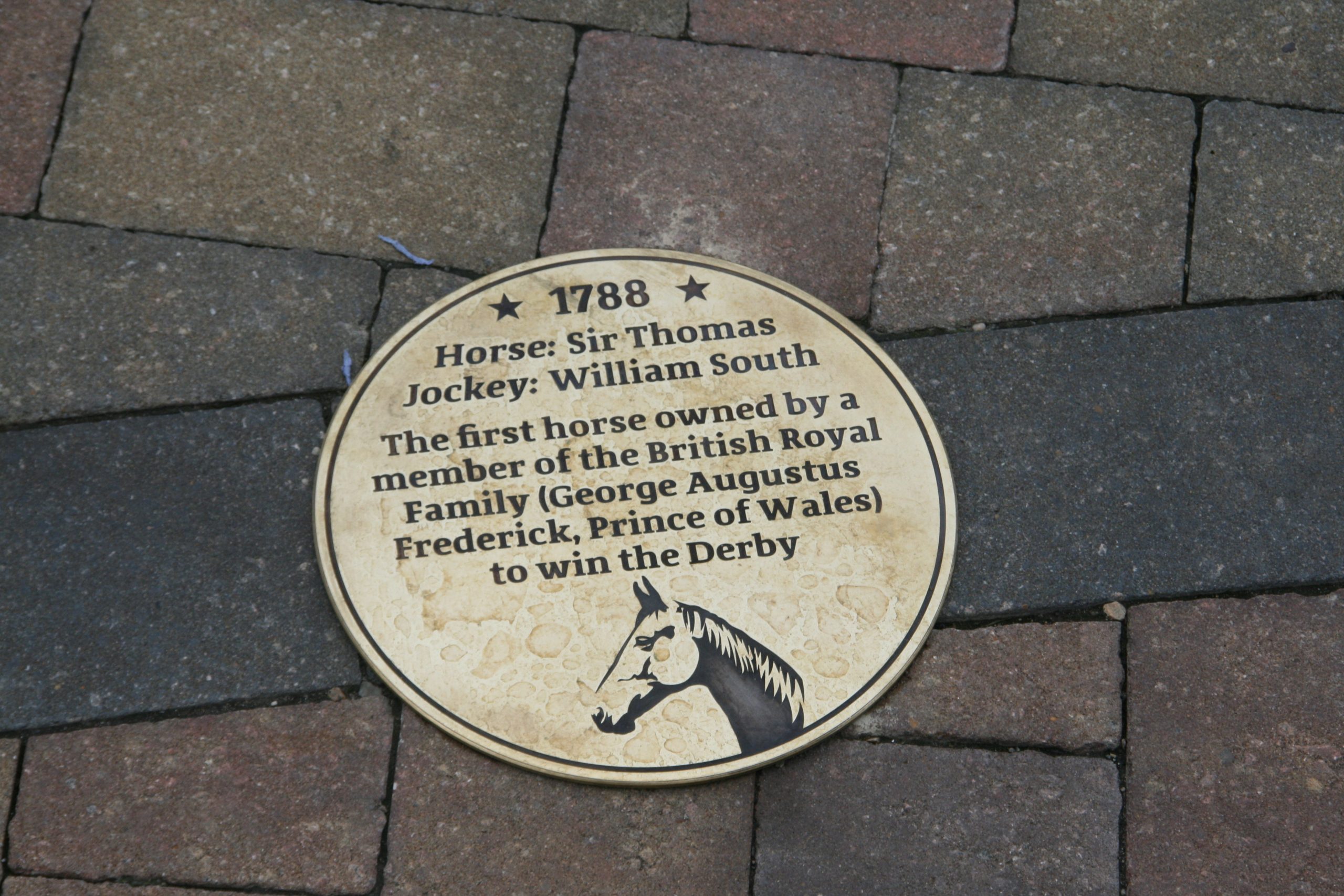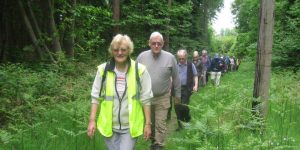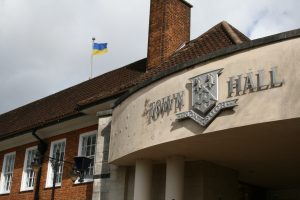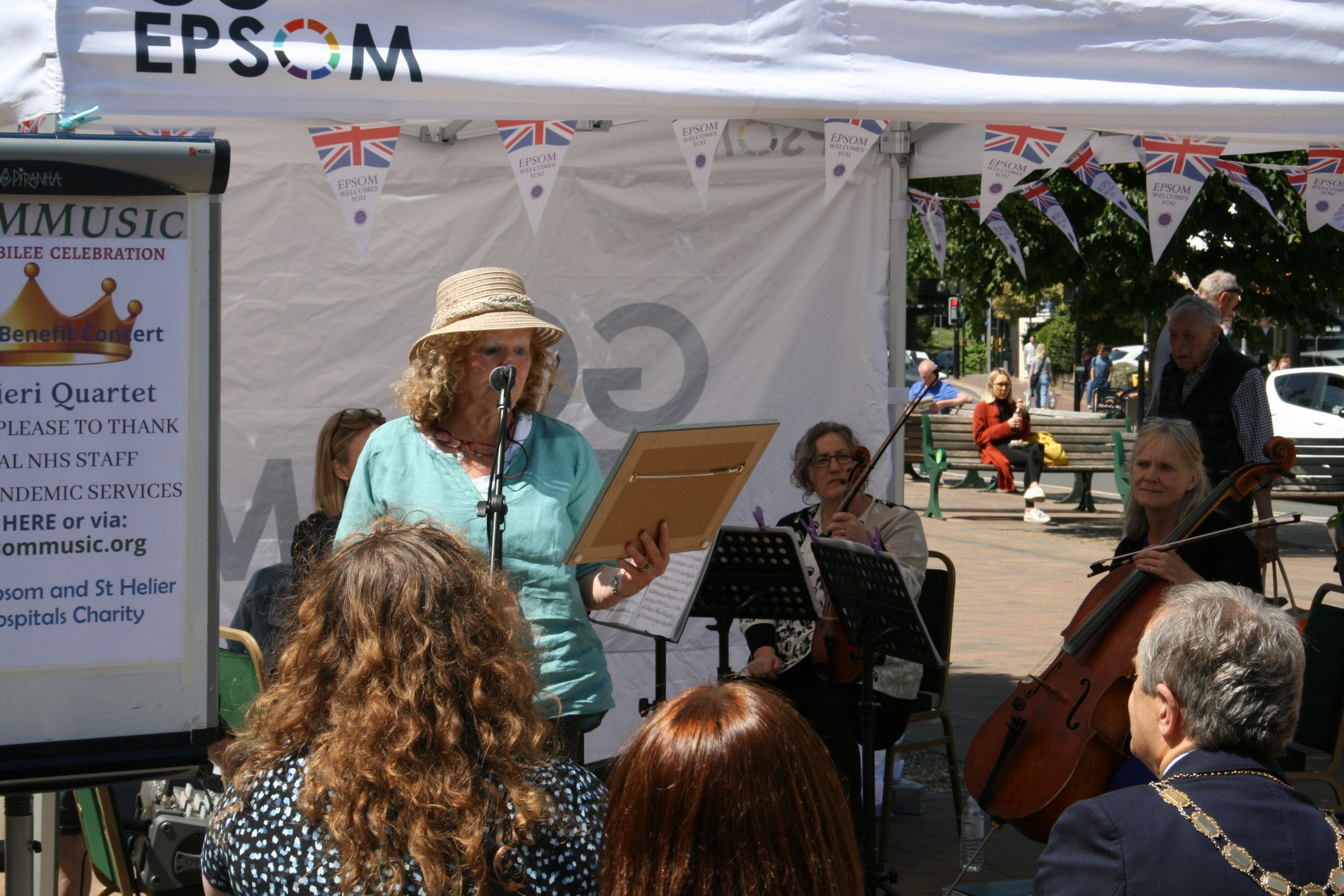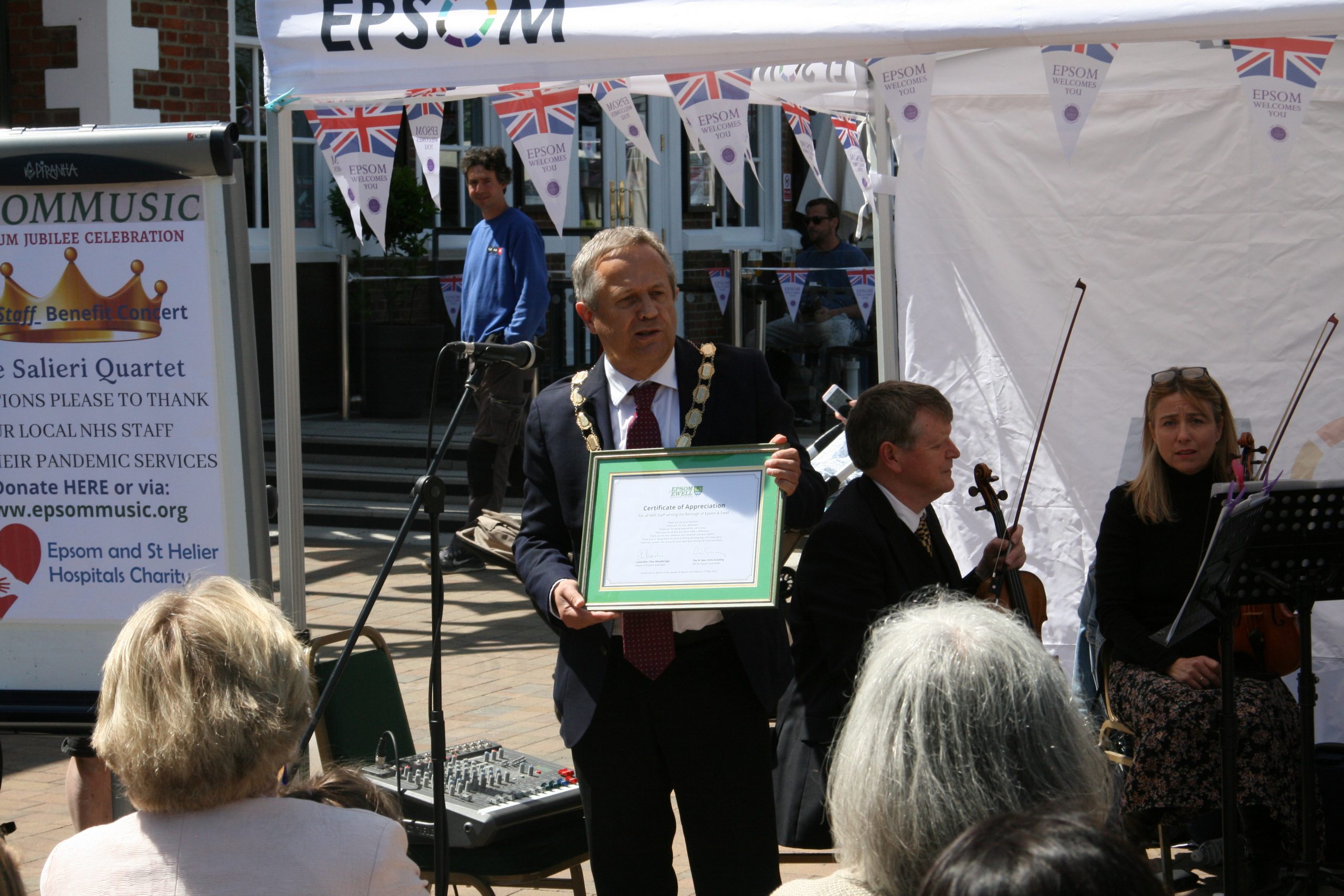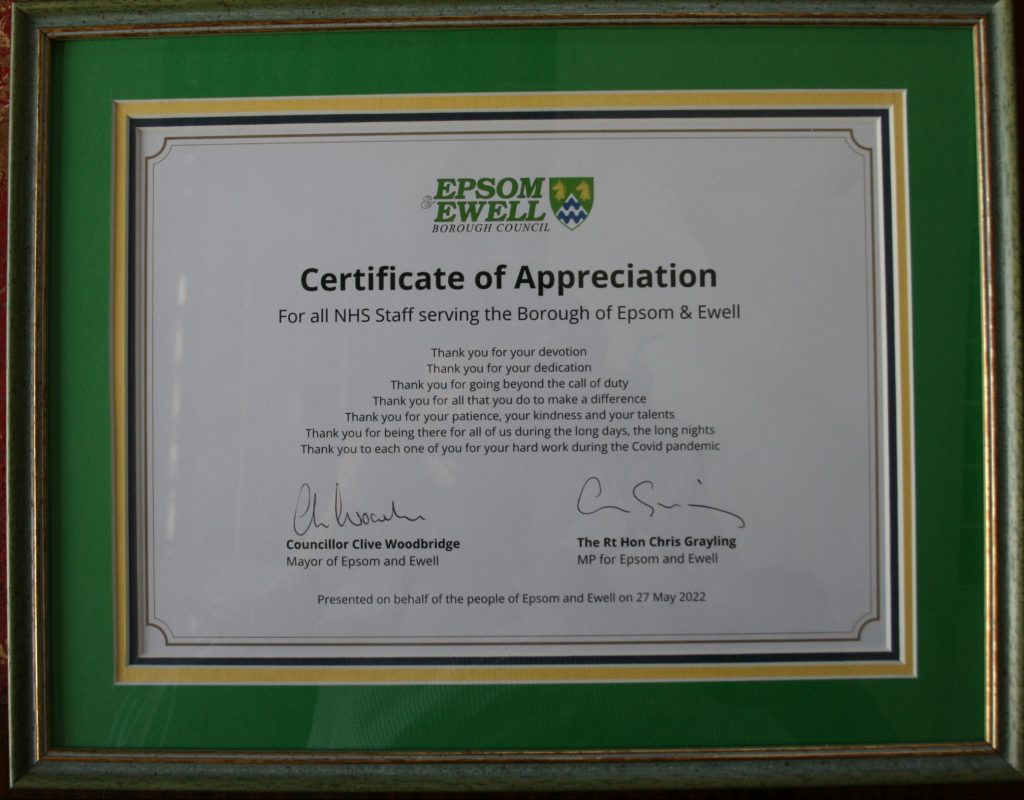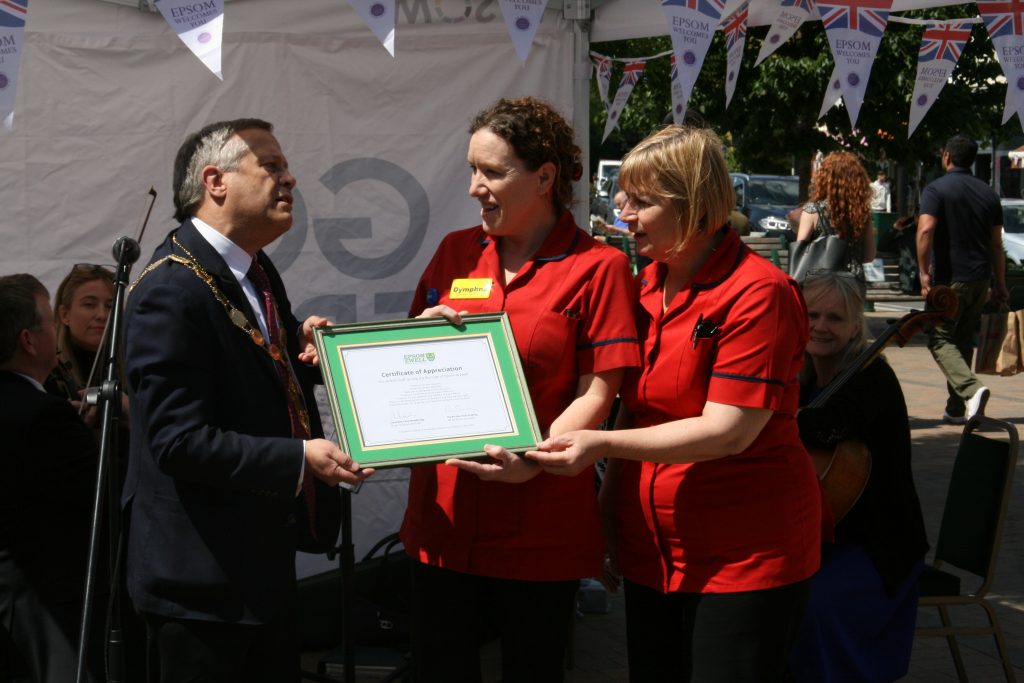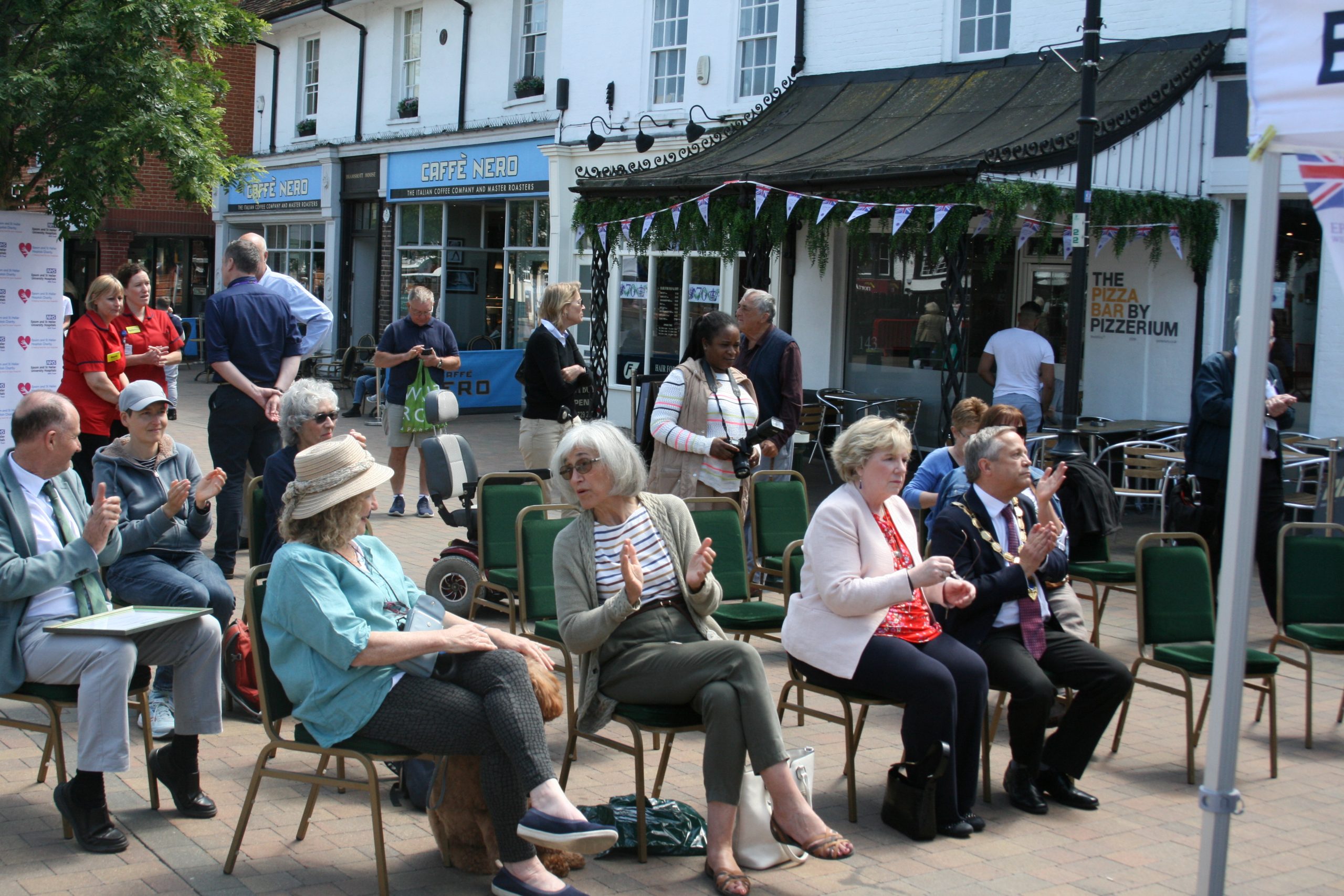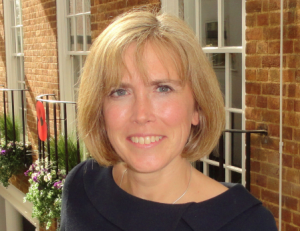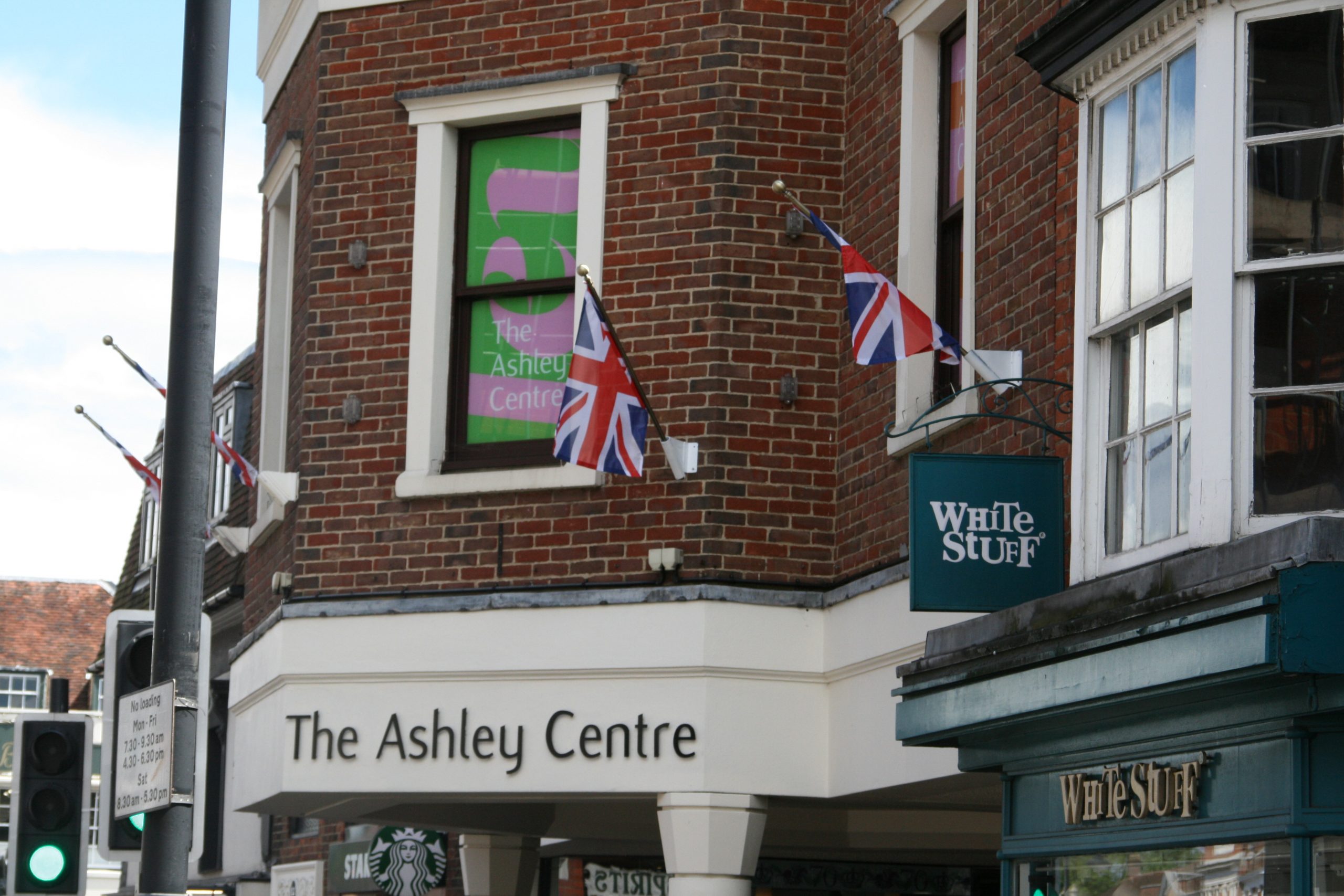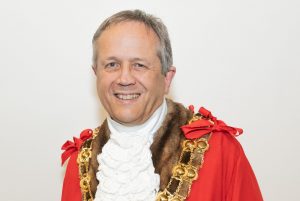All over the Borough of Epsom and Ewell for the past days and weeks, the Queen’s Platinum Jubilee has been celebrated by residents and businesses in Epsom & Ewell. 70 years of rule is a momentous occasion, no Monarch has ever ruled for such a long period of time, and the celebrations on display in the Borough reflected this fact.
After such a busy and energetic period, it’s important to look back and reflect on the revelries of the last days and weeks, and have a look at all the ways that the Borough celebrated the Jubilee. Some things you may have seen, some you may have heard about but missed, and some things you might have never even heard of. Epsom & Ewell Times took great notice of all the efforts from all corners of the Borough, to put on a proud display for our Queen and to entertain all who wished to celebrate. From Murals and Artwork to special musical concerts, there was something for everyone.
With beacon lightings, street parties and a huge fair in Epsom Market Square, there was no shortage of revels and festivities going on across the Borough. We were lucky enough to attend the fair and it was great fun; Sunshine, music and fun surrounded all, as people joined together to celebrate the long reign of our Queen.
Epsom & Ewell Times has collected photographs from across the Borough to showcase a number of the festivities that took place, to shine a light on all the incredible effort put into decorations and parties by local residents.
Family Fun Festival
The Family Fun Festival took place on Wednesday, with Music, games and fun for all the family. Stilt-walkers, Musicians and dancers kept us entertained and happy all day as we celebrated 70 years of our Queen. The Epsom Derby Hall of Fame was also unveiled, with roundels commemorating famous past winners, horses and jockeys are alike.
Epsom Beacon Lighting
Thursday saw the lighting of the Epsom Down’s Beacon. Hundreds of Beacons across the country were lit concurrently.
Woodlands Avenue Street Party
Also taking place on Thursday was a wonderful street party on Woodlands Avenue, at the northern tip of the borough in Worcester Park. A representative for the road told Epsom & Ewell Times: “Huge thank’s to our organisers Liz, Helen and Danielle. We had a Pimm’s stall, tombola stall, and Music (Ben did a great job compèring). BBQ, Large Jenga, best-dressed competition, plant a sunflower, and a plant sale. We were happy to raise £260 for the Bumblebee Conservation from the plant sale and £172 for Ukraine. A wonderful day had by all. Great community spirit!”
Very special thanks to Tara Lavelle who sent us these lovely photos.
-

-

-

-
 Meghan Harry and The Queen made an appearance.
Meghan Harry and The Queen made an appearance. -
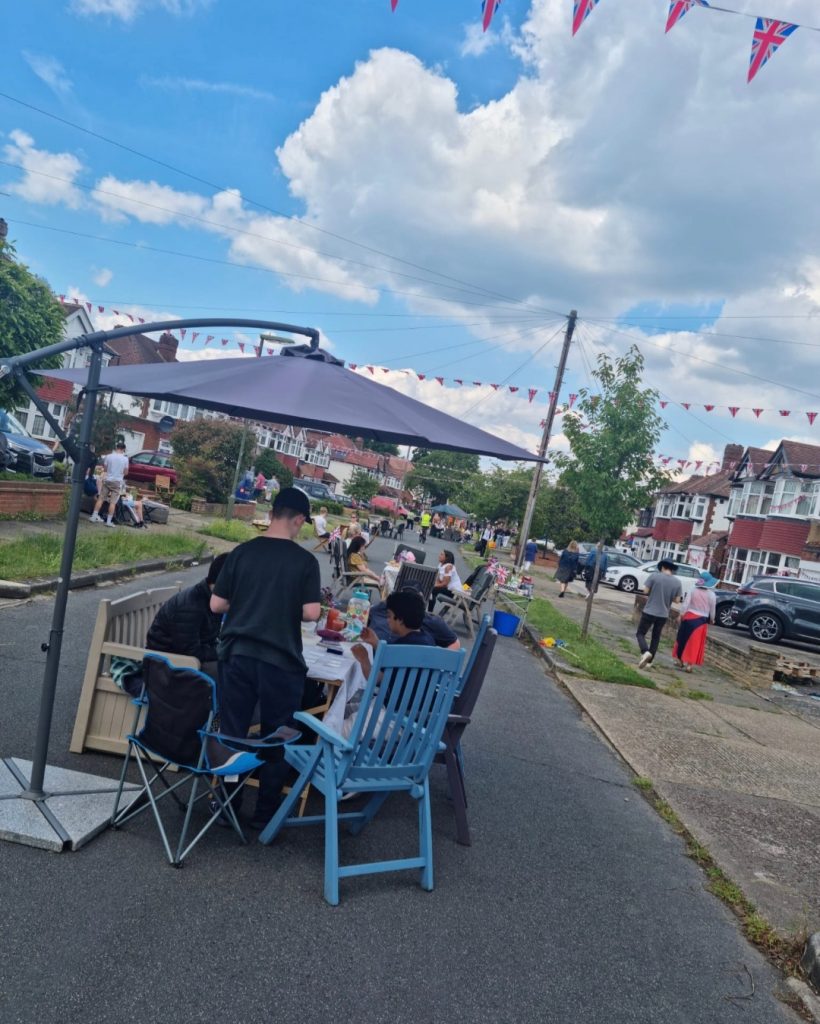
-
 Liz and her son Ben (compère and best dressed male)
Liz and her son Ben (compère and best dressed male) -

-
 The Bennett’s enjoying the day
The Bennett’s enjoying the day -

-
 Tara winning best dressed.
Tara winning best dressed. -
 87-year-old Sheila enjoying her pink gin and lemonade.
87-year-old Sheila enjoying her pink gin and lemonade. -
 Tombola stall with lots of fab prizes donated by the street
Tombola stall with lots of fab prizes donated by the street
Epsom Jazz Club – Jubilee Concert
Epsom Jazz Club celebrated the Jubilee it’s way.
Tenor sax virtuoso Vasilis Xenopoulos fronted a quartet featuring Nigel Price on guitar, Mikele Montolli on double bass and Laura Klain on drums. Laura had flown in that morning from Italy to join this truly international set. Not to avoid entirely the Jubilee celebrations several numbers played were composed 70 years ago in 1952.
A delighted audience of over 40, sitting comfortably in the cabaret setting of the acoustically perfect Oaks Room at the back of the Conservative Club in Church Street Epsom, were treated to an evening of superb professional jazz musicianship. This new jazz club bringing quality live music to the Borough continues next month on 7th July with a quartet featuring celebrated jazz vocalist Jo Harrop. See www.epsomjazzclub.com for details and tickets.
Wandgas Club Beacon Lighting
The lighting of the Cuddington RA/Wandgas Club Jubilee Beacon was a grand event, of all the beacon lightings, this one may have taken the cake. With an impromptu fireworks show to go along with the lighting.
We were lucky enough (not to mention thankful) to have photos provided by Richard Johnson, who also had this to say via Facebook…
“Yesterday evening, at 9:45 pm, numerous Jubilee beacons were lit across the Commonwealth. I went along to see the lighting of our local (KT4 postcode area) beacon at Wandgas Sports & Social Club. At 9:45 pm, Cuddington RA’s Cllr. Phil Neale stepped forward as official firestarter, setting in motion Cuddington’s salute to Her Majesty The Queen’s Platinum Jubilee. There was also the unexpected, simultaneous bonus of fireworks.”
Station Avenue Bunting
Now, from west Ewell, in the centre of the Borough, the dedicated residents of Station Avenue sent us photos of the bunting they put up on their road. Special thanks to Abigail Kuti for sending us the photos.
READ MORE: GALLERY: Inside the Epsom Jubilee Family Festival!










